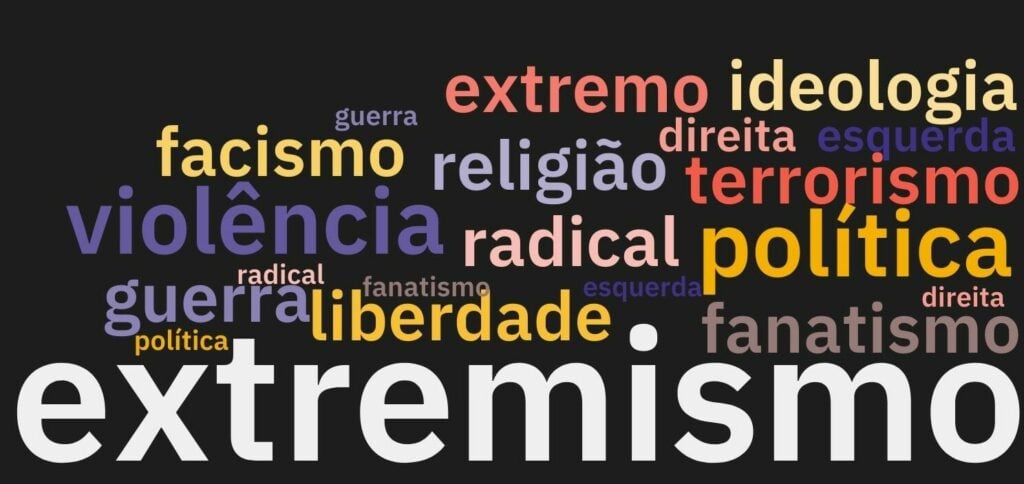Extremism can be associated with dogmatism and fanaticism. It is a model of thought that has dialogue and negotiation completely outside its pillars, that is: what you think, is. And that's final.
ADVERTISING
Extremism can appear associated with customs, religion and also politics. It has a direct connection with hatred of the opposite: if it is not part of what I believe, it cannot exist. Therefore, behind extremism there is the annihilation of contrary thought.
The expression “religious extremism” has become associated, in recent decades, with Islamic groups, such as the Taliban (in Afghanistan) and Hamas (in Palestine). Other groups considered terrorists were born from Islamic extremism, such as Islamic State and Al Qaeda, especially after the attacks of September 11, 2001 against the twin towers in the United States.
But extremism in religion, as well as in culture and in the defense of nationalist ideals, can be associated with different movements and is not the exclusive practice of a single faith.
ADVERTISING
And in politics?
Yes, extremism can also exist in politics. And this year, in Brazil, we saw this trend grow among conservative groups.
O Curto News talked to Rafael Costa, master in Social Sciences from Unifesp and university professor at Fecaf, about political extremism in the Brazilian scenario.
“From a political point of view, extremist is anything that is seen as something radical from a certain perspective. Radical, from Latin, means “root”. So, every time we classify someone as radical, we are saying that this person/group is very attached to their convictions, their roots.”, he explained.
ADVERTISING
It is worth mentioning that political extremism is not restricted to just one group, but to all sides that make its truth unique.
Far left, radical left, left, center left, center, center right, right, extreme right or radical right, can be part of extremist movements, to the extent that any of these political lines can propagate ideas and/or solutions extreme consequences for society's problems.
Violence
Historically speaking, the behavior of extremist groups has violence as one of its characteristics, evading formal methods of dialogue and transformation of problems.
ADVERTISING
“The word extremism is often used to separate “extremes” from “moderates”. In other words: anyone who is considered an extremist is seen as someone who does not “moderate”, in the sense of trying to find a balance in the face of different world views. Therefore, extremism is also a synonym for unbalanced, since it does not consider or balance its vision with other perspectives. It’s interesting to think that extremism is always a relative category. Who are you extremist towards? Is it moderate in relation to what?”, assesses Costa.
Extremism in Brazilian elections
In this year's elections, we could see intense polarization among Brazilian voters and, as an effect of this, there were records of deaths due to partisan fights, in a growing wave of political violence. Extremism generates acts of violence that cause deaths.
Is there a remedy for political extremism?
For Costa, “the remedy for extremism is democracy”. The main pillar of democracy is equality, minorities gain a voice and are able to have the same chances as the majorities. There is no curvature on either side, according to the scholar.
ADVERTISING
“As a political project, the fundamental assumption of democracy is equality. It is to give minorities the chance to have a voice with the majorities and, for this reason, the constant need for negotiation and consensus. The only political horizon that aims for this is democracy”, concludes the professor.
Read also
Curto Explain: everything you need to know and are embarrassed to ask!😉
Click to see more explanatory content ⤴️






